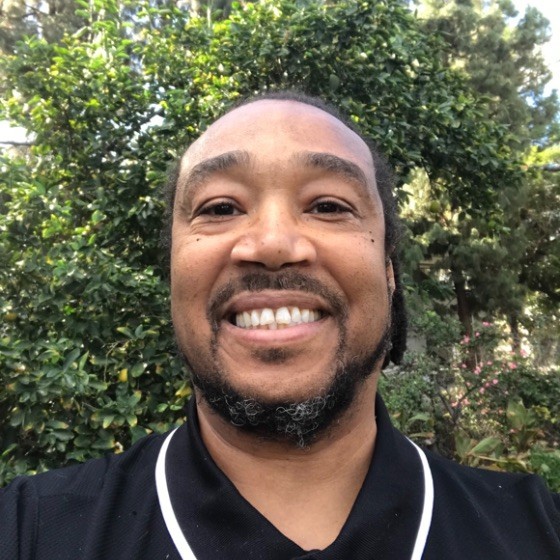Tell me a little bit about yourself. Where are you from?
I was born and raised in Michigan. I headed off to Los Angeles to attend the University of Southern California (USC) and received my bachelor's in journalism.
One of my first jobs was at the Los Angeles Unified School District (LAUSD). I was a publicity coordinator and managed communications for the LAUSD South Region's leisure time programs. Our role and responsibilities were to grow, enhance and strengthen our present programs and reach out to the greater Los Angeles community to build partnerships before and after school. I was in the community every day covering activities that students were participating in. I never thought I would work in the community but LAUSD motivated me to do that.
Can you share a bit about your educational background?
My time at USC was great! Those were the best four years of my life. USC has opened every job that I have had. I am still an active alumnus at USC, and I go to homecoming every year. I create posts for the Class of 1986 Facebook page when there is relevant information for Trojans. I also create posts for the USC Black Alumni Association's social media channels, and I assist with events for this group as well.
How did you become involved in community work? What motivated you to pursue this path?
I found that when there is research behind what you do and when you implement best practices and effective work, it makes your work a lot easier in the community. What I decided to do was to try to take what I have learned about research and bring that back to a community level so that community members understood that they can have access to data and that they can use this data to get better outcomes.
A lot of my work is in Los Angeles County. I live in Van Nuys, and I do a lot of work in the valley, but my work is county-wide. I have had the opportunity of receiving funding from the county to develop programs that focused on substance abuse, STDs, and HIV. I've worked in South L.A., Pasadena, Lancaster, Palmdale, and so many other areas.
What are you currently working on?
I'm currently working at Insight Center for Community Economic Development as the interim president, helping them identify a new president.
My most passionate work for the last year three years has been focused on COVID-19, ever since the pandemic began. I jumped right in as a volunteer for Black Women Rally for Action, and that's how I found out about the Community Advisory Board (CAB) for VaccinateLA and became chair.
One of the things we fought for is access to data so we could plan strategies to tackle issues happening on the ground. I highlighted the most pressing needs of the Black community by sending out a weekly update highlighting COVID-19 cases, deaths, vaccines, and boosters.
I also worked with a couple of interns at USC on data reports. We interviewed folks at the Taste of Soul, an annual Black event, to get their opinions about vaccinations, boosters, and masking. We also put together a report that looked at the top ten counties with the biggest Black populations in the country and looked at how each county did as far as COVID-19 cases, hospitalizations, and deaths.
You are an independent consultant with over 20 years of experience in policy and strategic planning. Can you explain a little bit about what you do as a consultant?
I consult with nonprofit organizations and government organizations. I help them identify issues that they are having and coach their executives on how to assess and fix a problem. A lot of the work I do is about developing their plans for a five-year period, engaging community members, training their board of directors and staff, preparing for new programs, and grant writing. I also facilitate retreats and help them with research development and publications for social media and newsletters.
In what ways do you work with the Community Engagement core group at SC CTSI?
I worked closely with Community Engagement when I was chair of the Community Advisory Board for VaccinateLA, providing feedback on the newsletters, meeting other community partners to discuss collaborations, and facilitating our monthly CAB meetings to ensure all the other members continue to stay engaged.
What does 'community' mean to you?
It's where we live, work, and play. When I was growing up in Michigan, I was involved in the community because it was expected, not only from my family but from everyone else in the community. Everyone was expected to volunteer; it was a part of life to be there for the community. To me, a community is all about volunteering, giving your time and effort to ensure everyone has an optimal quality of life.
You can describe communities in different ways. It might be based on race, ethnicity, gender, or shared experiences. For me, it's all of the above. It's the group of folks I care about the most and helping them succeed, and in this case, it happens to be the entire population of L.A. County.
What advice would you give to someone who is interested in working in the community?
Do it for the right reason. It's going into a space and working with someone, alongside them. It's about building relationships with folks so that people can continue to do the work when you are not there. Ask yourself, "How can I help make things better for everyone involved?"
